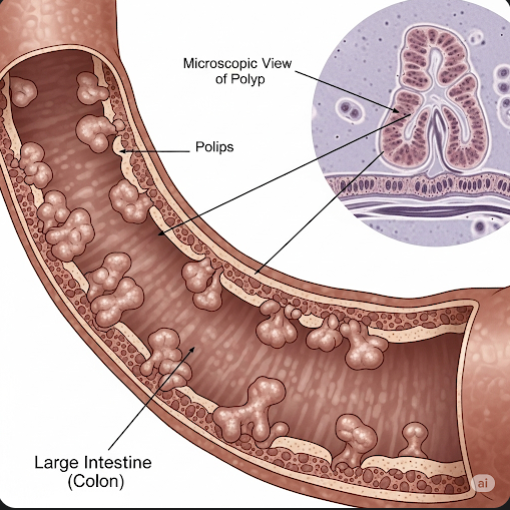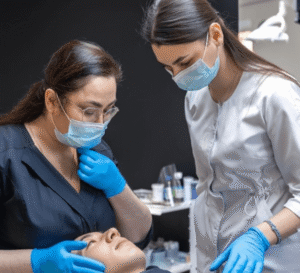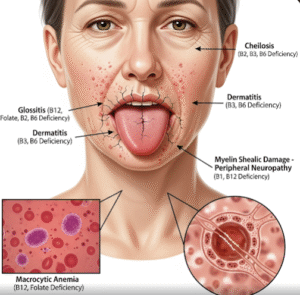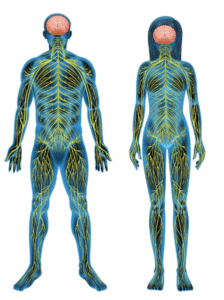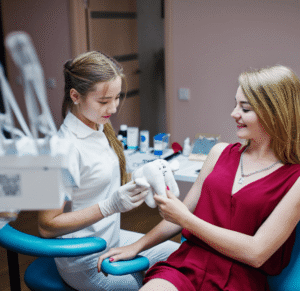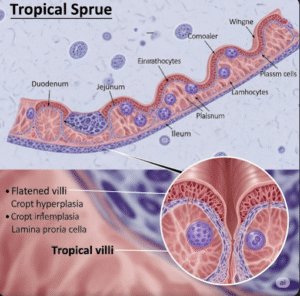Overview
Polyposis syndromes are a group of genetic disorders characterized by the growth of multiple polyps in the gastrointestinal (GI) tract, particularly in the colon and rectum. These polyps are abnormal tissue growths that can be benign or have the potential to become cancerous over time. Without timely diagnosis and treatment, many polyposis syndromes carry a high risk of colorectal cancer, often at a younger age than in the general population.
Early screening, genetic counseling, and regular surveillance are essential for individuals and families at risk.
What is Polyposis Syndrome?
Polyposis syndromes refer to inherited conditions where individuals develop numerous polyps, often numbering in the hundreds or thousands, throughout the gastrointestinal tract. The polyps may be:
- Adenomatous (precancerous)
- Hamartomatous (benign tissue overgrowths)
- Hyperplastic (usually non-cancerous)
The most common polyposis syndromes include:
- Familial Adenomatous Polyposis (FAP)
- Attenuated FAP (AFAP)
- Peutz-Jeghers Syndrome (PJS)
- Juvenile Polyposis Syndrome (JPS)
- MUTYH-Associated Polyposis (MAP)
- Cowden Syndrome
Each type is associated with a different genetic mutation and cancer risk profile.
Symptoms
Symptoms vary depending on the number, location, and type of polyps but may include:
- Blood in the stool
- Abdominal pain or cramping
- Diarrhea or constipation
- Unexplained weight loss
- Iron-deficiency anemia
- Mucus in the stool
- Fatigue
- Visible rectal polyps in some pediatric cases
In some syndromes, patients may also have extraintestinal features, such as skin pigmentation, jaw cysts, or tumors in other organs.
Causes
Polyposis syndromes are primarily caused by genetic mutations passed from parents to children in an autosomal dominant or recessive inheritance pattern. The specific gene mutations determine the syndrome:
- FAP/AFAP: Mutation in the APC gene
- MAP: Mutation in the MUTYH gene (autosomal recessive)
- PJS: Mutation in the STK11 gene
- JPS: Mutation in the SMAD4 or BMPR1A genes
- Cowden Syndrome: Mutation in the PTEN gene
These gene mutations disrupt normal cell growth, causing uncontrolled polyp development.
Risk Factors
Risk factors include:
- Family history of colorectal cancer or known polyposis syndromes
- Known genetic mutation associated with one of the syndromes
- Early-onset colorectal or gastrointestinal cancers in family members
- Personal history of multiple colon polyps
Genetic testing is recommended for individuals with a strong family history or early onset of GI symptoms.
Complications
If left untreated or undiagnosed, polyposis syndromes can lead to serious complications:
- Colorectal cancer (often by age 40 in classic FAP)
- Gastrointestinal bleeding or anemia
- Bowel obstruction or intussusception
- Polyps or cancer in other GI organs (e.g., stomach, small intestine)
- Extraintestinal cancers (thyroid, breast, pancreas, liver, uterus, etc.)
- Malnutrition or failure to thrive in pediatric patients
- Post-surgical complications if colectomy is needed
Prevention
While the genetic mutation cannot be prevented, early detection and surveillance can prevent cancer and improve long-term outcomes:
- Regular colonoscopy starting in childhood or adolescence
- Upper endoscopy and small bowel imaging for polyp detection
- Prophylactic surgery (e.g., colectomy) when necessary
- Genetic counseling and family testing
- Healthy diet and lifestyle to support overall GI health
- Avoid smoking and limit alcohol, both of which increase cancer risk
Treatment Options in Korea
South Korea offers world-class gastroenterology and genetic medicine, making it an ideal destination for diagnosis and treatment of polyposis syndromes.
1. Diagnosis and Genetic Testing
- Colonoscopy and upper endoscopy to detect polyps
- Capsule endoscopy or CT enterography to screen the small intestine
- Biopsy of polyps to assess cancer risk
- Genetic testing panels for APC, MUTYH, STK11, SMAD4, and others
- Family screening and counseling
2. Medical Management
- Surveillance programs tailored to each syndrome
- Aspirin or NSAIDs (in some cases) to reduce polyp growth
- Iron supplements for anemia
- Nutritional support for pediatric cases or post-surgical patients
3. Surgical Options
- Colectomy (removal of colon) in FAP or advanced MAP cases
- Polypectomy (removal of polyps) during endoscopy
- Duodenectomy or gastrectomy if polyps develop in upper GI tract
- Stoma care and colorectal reconstruction, if needed
4. Cancer Prevention and Surveillance
- Regular imaging and biopsies for early cancer detection
- Surveillance of extraintestinal organs (breast, pancreas, thyroid, etc.)
- Multidisciplinary care from GI, oncology, and surgical teams
5. Top Hospitals in Korea
- Samsung Medical Center
- Asan Medical Center
- Seoul National University Hospital
- Severance Hospital
These institutions offer:
- Comprehensive hereditary cancer clinics
- Advanced endoscopic and minimally invasive surgery
- Genetic counseling and testing for families
- International patient services with English-speaking teams

